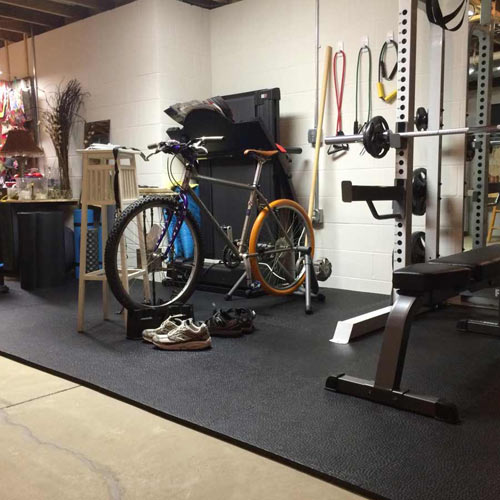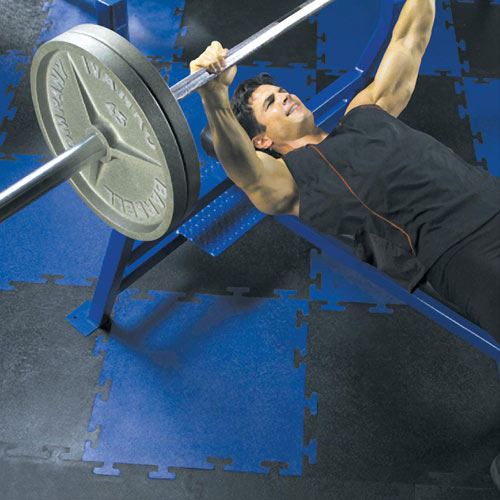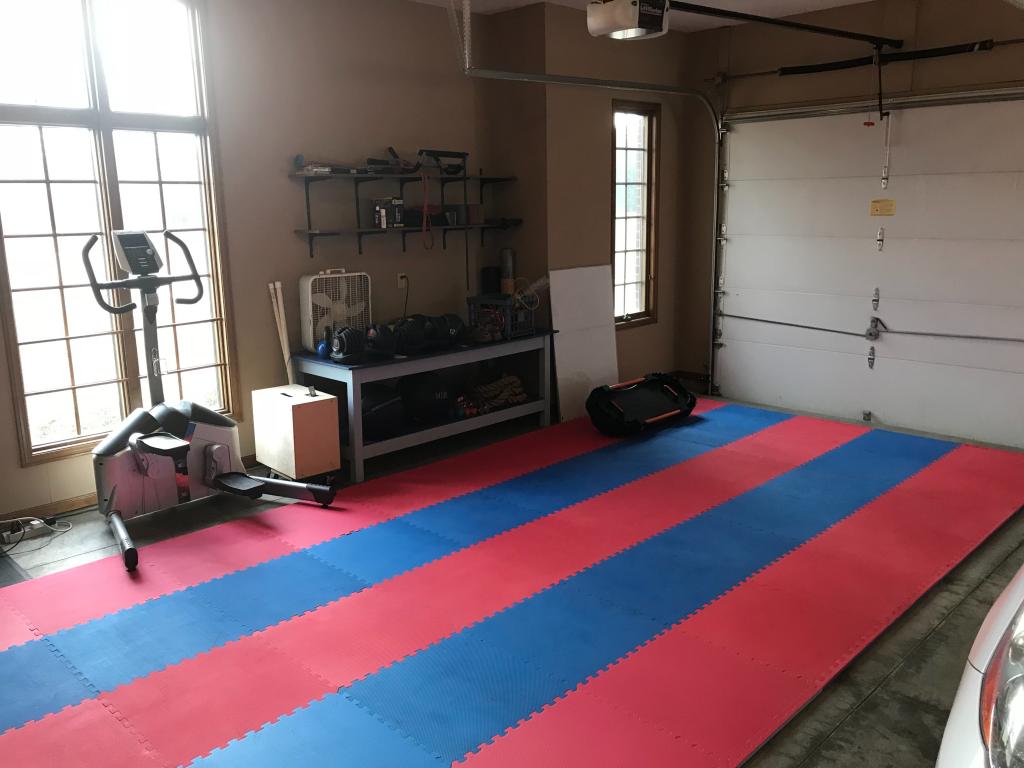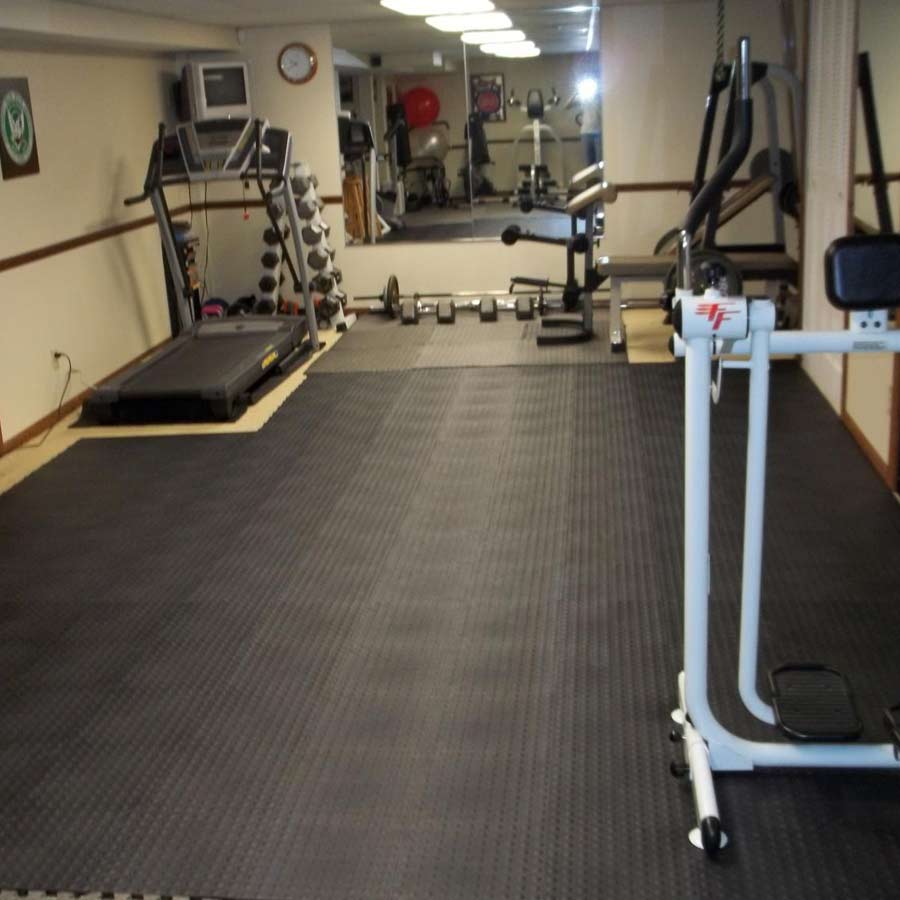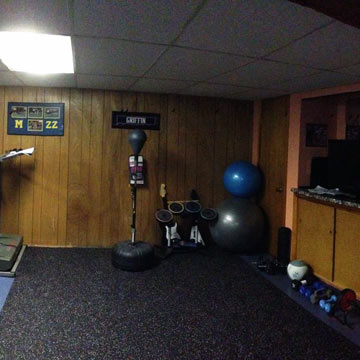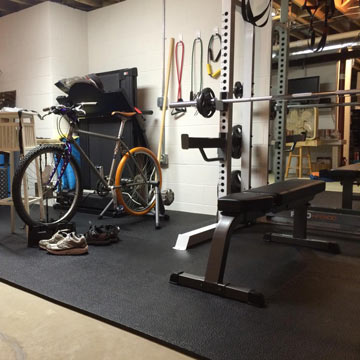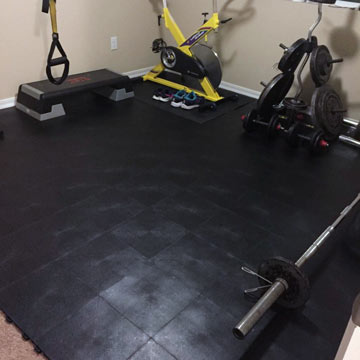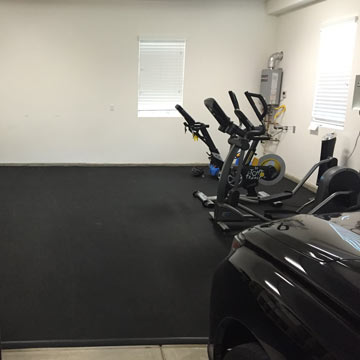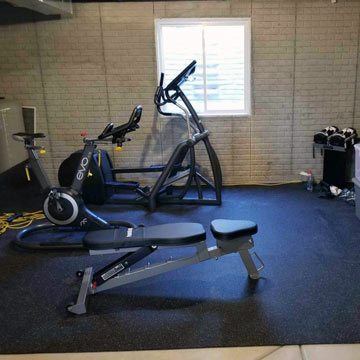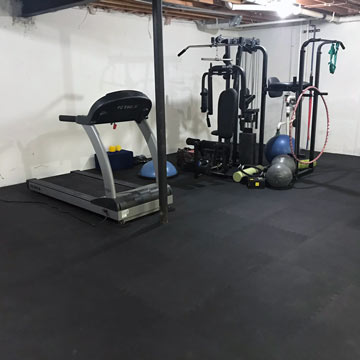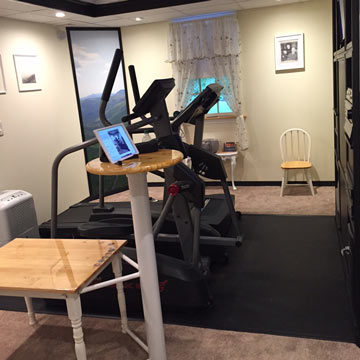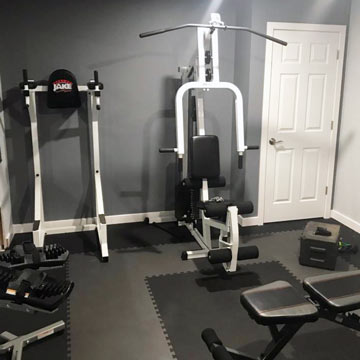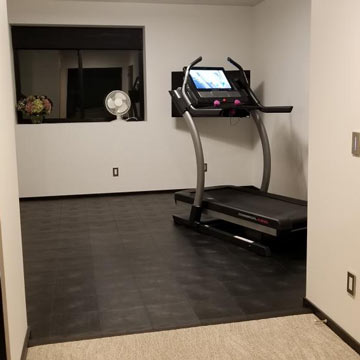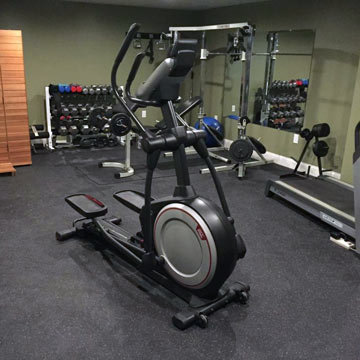What Is the Best Flooring For An Exercise Room With Carpet or Concrete
Related Product: Gym Floor Workout Fitness Tile Pebble 3/4 Inch x 2x2 Ft.
What type of flooring is best for a home gym?
Most home gyms are placed in tucked-away areas of your home, such as a garage or basement. In many cases, these gyms will need to share the space for purposes other than workouts. These are all factors at play when answering what type of flooring is best for a home gym.What is the best flooring for a gym in a concrete basement?
A basement home gym will likely have a hard floor, such as concrete. In this case you'll want a type of gym flooring that will protect your body from the hard, cold concrete and, in many cases, protect the concrete from your workout equipment - such as free weights. You'll also likely have to navigate narrow stairways or doorways when hauling the flooring into your house and to the desired gym location. And unless you've got an ambitious group of friends, you'll probably be installing the floor yourself. No matter what type of exercise you'll be doing in a basement gym, you'll want a gym flooring that is lightweight or conveniently sized. This will save you a lot of headaches and back pain.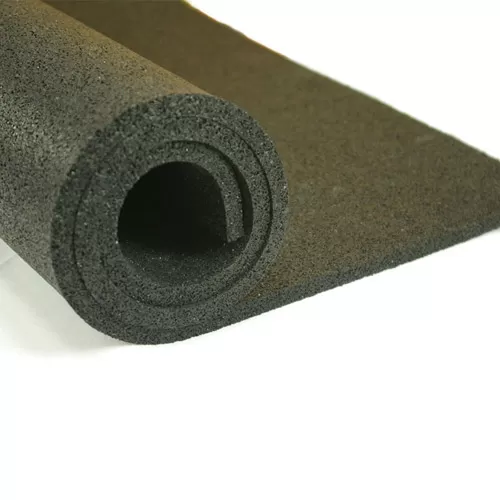
For home gym exercise rooms where weightlifting will take place, rubber gym flooring is generally preferred. This will be the most durable flooring material fit for this purpose. While rolled rubber is the most economical method, it will be the most difficult to haul into your basement due to its size and weight. Even a conveniently sized 4x10 foot roll of rubber will still weigh at least 50 pounds and be four feet long.
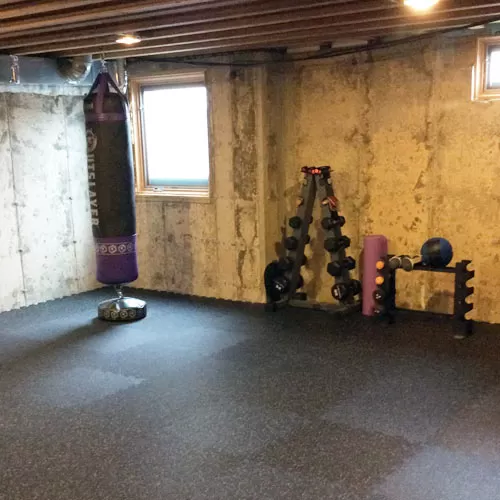
That's where interlocking rubber tiles come in handy. These tiles are available in sizes as small as 2x2 foot squares that can be as light as 12 pounds each. They don't require any adhesives to install, so DIY installs are as simple as they get for a rubber gym floor. They also reduce waste because you are able to be more precise in meeting your dimension requirements with minimal trimming.
Keep in mind that rubber gym flooring will be the same consistency as a car tire because they are made from recycled car tires, so don't expect it to be soft or springy. If soft and springy is what you're looking for, you'll want a home gym floor made of either PVC plastic or EVA foam.
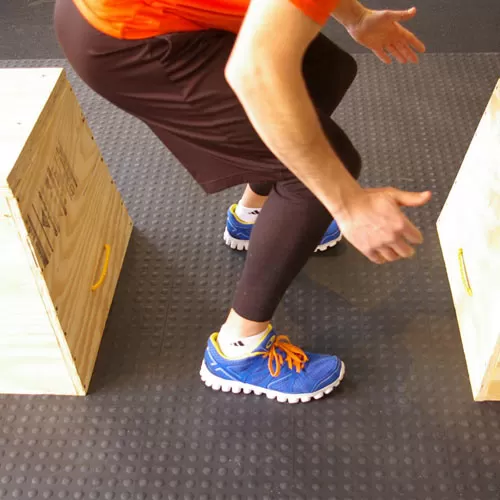
PVC home gym flooring tiles will be significantly more cushioned than rubber but firmer than foam. These tiles usually snap together and feature a raised base, which is great for basements that experience periodic moisture. This PVC material is very flexible - not to be confused with hard PVC pipes used for plumbing.
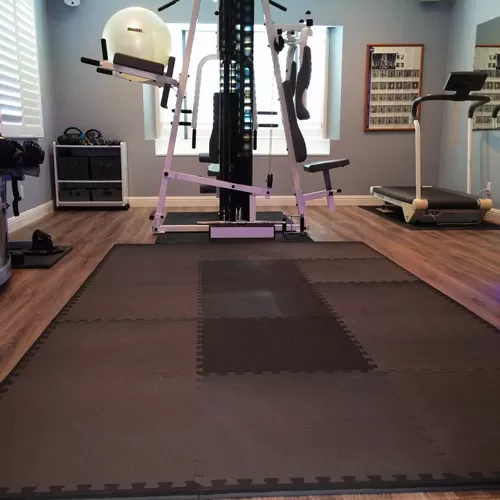
EVA foam home gym flooring, often called puzzle mats, is going to offer the greatest cushion and is very popular for people using their home gym for aerobics, gymnastics, martial arts, or wrestling. This will also be the lightest weight option and the most susceptible to indentation from heavy equipment or punctures from sharp objects. These interlocking gym floor tiles are usually 2x2 feet or 1x1 meter in size. You can even find some super high-density foam tiles that are designed to handle moderate weightlifting activity.
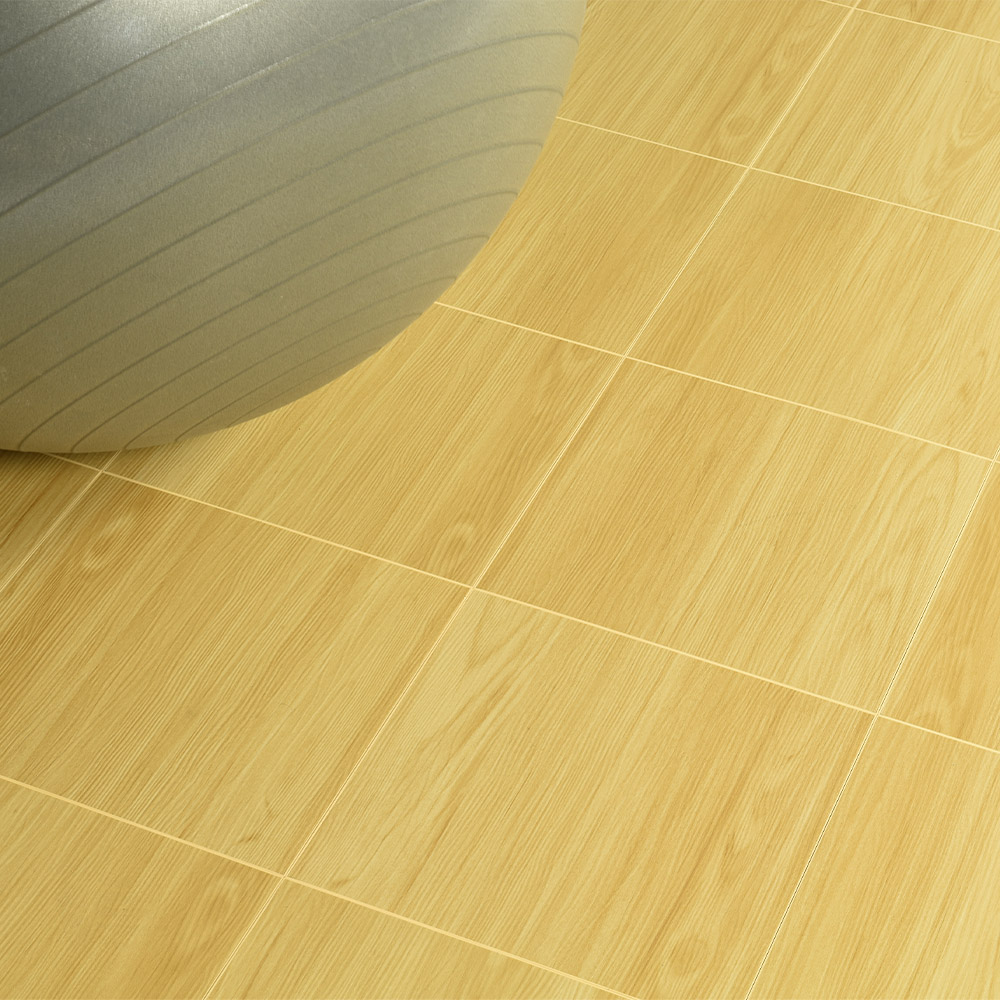
If Jazzercise or Zumba is your thing, you may also want to consider modular vinyl-topped raised tiles. Greatmats offers a nice variety of these tiles with a hard raised plastic base, topped with vinyl. This type of flooring will not have the stereotypical ''gym'' look, as the tiles often have a wood-style pattern to the vinyl but are very popular for multipurpose rooms that include dance-based exercise.
What is the best flooring for an exercise room over carpet?
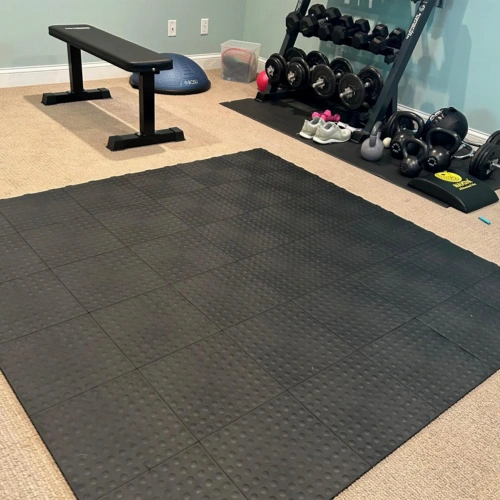
If your basement already has carpet in it and you don't want to tear it out, the 1x1 foot plastic tiles are going to be your best option. PVC tiles will offer the greatest versatility for exercise in this situation without shifting on or harming the carpet below.
If you're looking for a firmer surface, go with the vinyl-topped plastic gym floor tiles. While it is designed to handle significant static weight loads, you won't want to drop free weights on this floor.
What’s the best flooring for a gym located in a garage?
Garage gyms offer a much greater range of viable flooring options than basements, due strictly to the fact that you will have a large doorway to enter and no hallways or stairs to navigate. These pretty much give you the opportunity to use whatever gym flooring you want. The downfall to garage gym floors, however, is that you will have great temperature fluctuation and possibly even humidity levels.Again, rubber flooring is preferred for heavy weight lifting. This would be your opportunity to use larger rubber mats or rolls, but keep in mind you still may need help installing the larger rubber surfaces due to their weight and potentially awkward shape. You also won't want to drive your cars or trucks on rubber because automotive fluids have been known to break down rubber material.
If you go the PVC gym flooring tile route, they work equally as well for workshops, offering fatigue relief and easy cleaning. Raised PVC tiles are not recommended for use under automobiles either, as the weight can damage the support mechanism of the tiles.
EVA foam garage gym flooring should be treated just like it is in your basement. The main difference is that foam will have greater potential for expansion and contraction due to temperature and humidity fluctuations, so make sure to leave plenty of expansion room around the edges.
While all of these materials are non-absorbent, if the flooring has a flat bottom, it will trap moisture beneath the tiles or rolls if your floor is prone to condensation or water seepage. Be sure that you'll be able to lift the flooring to dry underneath and re-lay. Also pay special attention to the type of rubber your flooring is made of. Vulcanized rubber will be completely waterproof, but non-vulcanized rubber will allow some permeation, so it should not be power washed or soaked. (Rolled rubber is usually non-vulcanized.) Damp mopping with a mild floor cleaner is preferred with any of these options.
If you have questions or need guidance in narrowing your options to a perfect fit, feel free to call one of our live customer service representatives.
Now you know how to determine ''What is the best flooring for a gym?''
